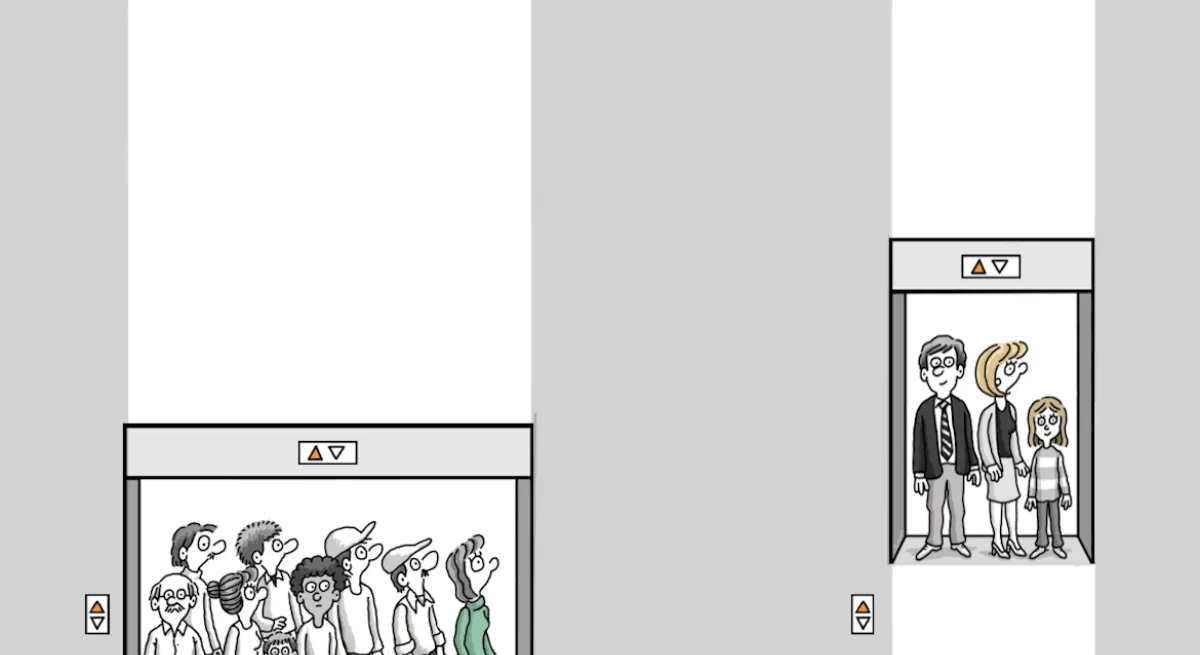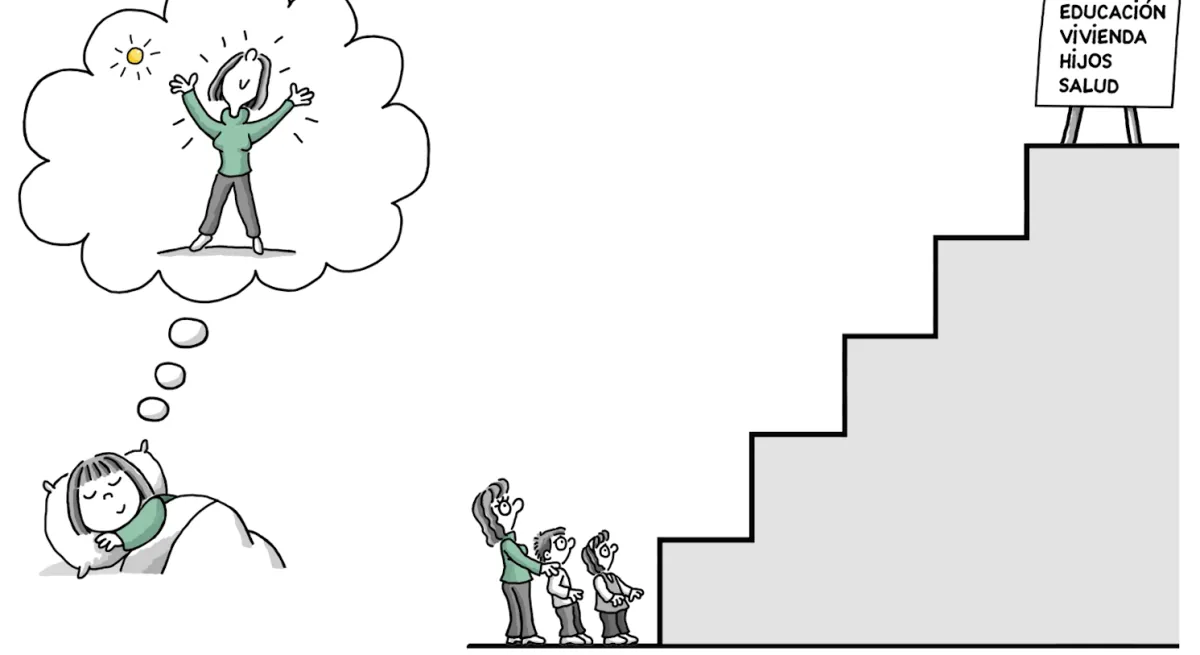
Throughout their lives, people seek opportunities that bring happiness and fulfilment. Regardless of their situation or status, individuals aspire to fully develop their skills and talents. Similarly, they want their loved ones to have the same opportunities. For instance, they aspire for their children to have access to a quality education that allows them to achieve their dreams or to opportunities that foster personal growth. When those opportunities are lacking, it becomes difficult for individuals to achieve their goals, desires, and sense of fulfilment.
The promotion of social mobility – essentially the possibility to “progress in life” - aims to increase the opportunities society offers. As people "emerge”, they gain more freedom and autonomy to choose a career path or a place to live, for example. However, society often strongly encourages individualistic values. Personal merit and individual effort, rather than collective effort, are presented as the best and only path to success. This often generates intense competition between individuals, leading them to experience the success or failure of their projects in a solitary, even isolated, way. In such a context, social mobility can appear as a zero-sum game, where one person moving up implies another moving down. Moreover, moving up carry emotional costs, such as breaking away from one’s roots or experiencing a sense of not belonging. The challenge is further complicated when society fails to provide opportunities for development. A lack of opportunity results in a stagnant society, unable to progress or solve its problems, which breeds frustration and growing social unrest that can eventually erupt.

In recent years, after a period of certain social and economic prosperity, Chile has faced increasing challenges where "emerging" has become more difficult and limited. Phenomena such as inequality, wealth concentration, social segregation and persistent discrimination and stigmatization threaten the wellbeing and quality of life for current and future generations. Faced with this situation, many are losing faith that their merits, abilities and talents will lead to achieving their goals and improving living conditions.
The promotion of social mobility should be seen as a collective effort. Having more opportunities to achieve personal goals and dreams does not depend solely on individual effort, nor is it a matter of "luck". To "emerge", a broad support network is essential – one that helps individuals overcome obstacles and take advantage of the opportunities that arise throughout their lives.
Addressing the various forms of inequality that affect society is critical. Conditions must be created to promote equity in education, both at school and higher education levels. Additionally, it is crucial, to reinforce and expand initiatives that offer new opportunities to disadvantaged groups. Mobility processes must be tackled collectively, rather than in isolation.
Thus, fostering different forms of social solidarity that are transmitted both collectively and generationally is vital. Solidarity and mutual support, beyond the family environment, will enable individuals’ people to achieve greater freedoms and levels of personal fulfilment.

In a world affected by multiple crises, promoting social mobility is essential to building fairer and more stable societies - societies based on trust, cohesion, and social solidarity. For this reason, social mobility should be regarded as a public good for society. Numerous initiatives, such as scholarships, mentoring networks, and inclusion programmes at the educational and employment level, exist to promote mobility. The challenge now is to establish a pact of solidarity and mutual support within society - a pact for more social mobility.
Art Direction and Production Design: Guillo
Did you enjoy this exchange?
If you are a researcher or specialist in inequality reduction issues, write to us and let's talk.
